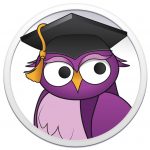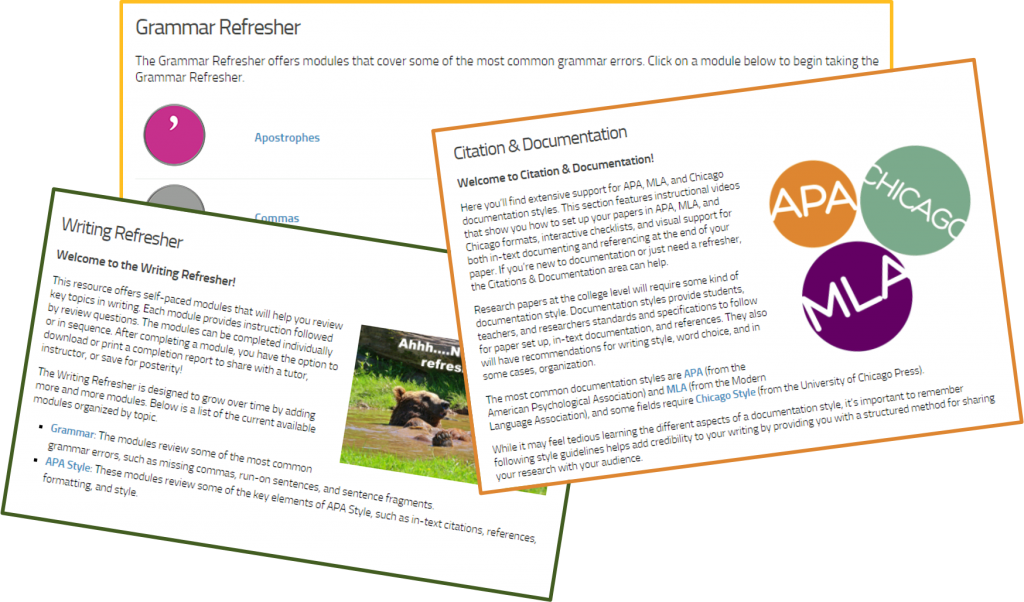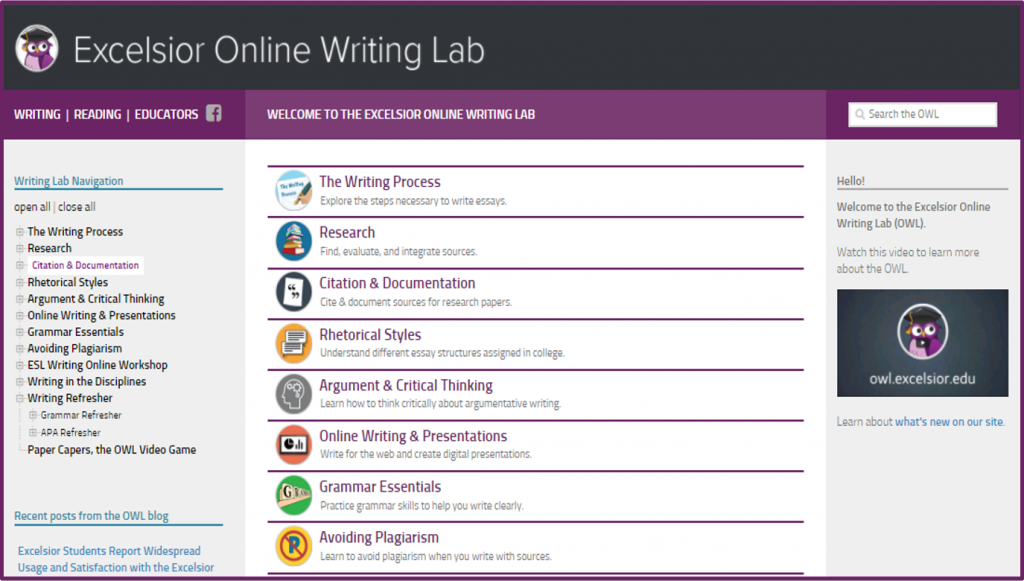OWL Success Stories: How the OWL Helps Health Sciences Keep Their Writing in Shape
In this series of articles, the Excelsior University Online Writing Lab (OWL) team interviews students and instructors about the OWL and finds out more about how this unique platform provides an invaluable resource to help improve writing, assignments, or presentations, and many more things besides. We also delve into how the OWL features as an indispensable and free resource to help both students and instructors alike.
 Anna Zendell has been a social worker for nearly two decades. She started out working with individuals with developmental disabilities and their family caregivers and eventually moved into community and behavioral health work with older adults and healthy aging. Eventually her path led to Excelsior University’s School of Health Sciences, where she oversees the Bachelor and Master of Health Sciences degree programs. Anna also teach several courses, including PBH422 Contemporary Issues in Developmental Disabilities, HSC417 Dementia in America, HSC331 Psychosocial Impacts of Chronic illness, and HSC310 Writing for the Health Science Professions.
Anna Zendell has been a social worker for nearly two decades. She started out working with individuals with developmental disabilities and their family caregivers and eventually moved into community and behavioral health work with older adults and healthy aging. Eventually her path led to Excelsior University’s School of Health Sciences, where she oversees the Bachelor and Master of Health Sciences degree programs. Anna also teach several courses, including PBH422 Contemporary Issues in Developmental Disabilities, HSC417 Dementia in America, HSC331 Psychosocial Impacts of Chronic illness, and HSC310 Writing for the Health Science Professions.
In her personal life, Anna is passionate about all things nature and enjoys hiking with friends and family, heirloom gardening, and nature photography.
Excitement for Excelsior Courses
Anna has been teaching with Excelsior for almost 7 years. What excites her most about the courses that she oversees are the students. “We have an excellent curriculum, with most courses focusing on current issues and trends. That is imperative in the health field. Our students come from all walks of life and bring such a rich array of experiences to the online classroom! We want our students to leave Excelsior prepared to make changes that better our society. Our students bring our curriculum to life with their experiences, insights, and the ways in which they critically evaluate their learning through these multiple lenses.”

OWL Awareness
Anna first became aware of the OWL back in 2013, when Dr. Crystal Sands, then OWL director, did extensive outreach to the faculty. She first began to use it in her teaching as a resource for students who were struggling with their writing. Anna would post a link to the OWL with her grading feedback. If a student had difficulty forming cohesive paragraphs, for example, she would give an example of how to fix it and then refer the student to that relevant area of the OWL. Now, as a program director, Anna often links sections of the OWL with writing assignments, as well as continuing to use it for feedback when needed.
APA Style and the Writing Refresher
The APA Style section under the Citation and Documentation tab is one of Anna’s favorites. Students so often struggle with APA formatting, and yet it is a requirement across the college. This page is user-friendly, and students who do the tutorial typically fare much better on writing assignments. Depending on the type of assignment, she will often link to the relevant writing style, so if her students are writing a persuasive essay, she will provide a link there. Anna also has begun to make extensive use of the writing refresher area for grading feedback. This area provides very student-friendly feedback on areas they may struggle with, such as commas or run-on sentences. She highly recommends the Refresher to her fellow faculty and to students.

The OWL Helps Students Improve Their Writing
Students using the OWL tend to submit written work that is clearer, more focused, and more closely organized around their topic. Their grammar also tends to be better. “I especially see improvements when students use the OWL in their work, submit drafts to their instructors for feedback, and then apply the feedback to submit their work for a grade. This tells me that the OWL is especially effective when coupled with faculty feedback on their writing. It is a powerful combination!”

Making the OWL Even More Effective and Helpful to Students
“The OWL is beneficial for most of our students. There is a subset of students who struggle with taking the lessons of the OWL pages and applying them to their own writing – for example, reviewing the information on writing a thesis statement and then writing their own thesis statement. Access to live assistance may be beneficial for this group of students. In the absence of this option, it may be helpful to work with faculty to find ways to overcome this barrier and make the content fully accessible for all types of learners.”
